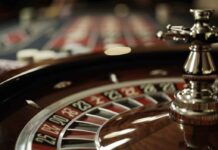Slot machines have long been a popular entertainment source in brick-and-mortar and digital casinos. They are easy to use and allow you to win large sums of money. Still, there has been ongoing discussion about whether slot machines are rigged to favor the house. In this article, we will discuss how slot machines are programmed, how bonus rounds are calculated, and dispel a few myths about slot machines.
How Are Slot Machines Programmed?
Various slot machines are available, each with distinct characteristics and gaming experiences. Ciaran McEneaney from Techopedia explains that the majority of real-money slots found in top online casinos, such as classic fruit machines and Megaways slots, have dynamic reels with different numbers of symbols per spin, providing an exciting and unpredictable gaming experience.
All slot machines, including video and multi-line slots, use RNGs to decide the result of each spin, but the programming and payback percentages can differ based on the type of slot machine being used. To determine if slot machines are designed to win, it is crucial to examine the RNGs and payback percentages that drive these machines:
Random Number Generators (RNGs)
Slot machines use Random Number Generators (RNGs) to ensure the randomness and fairness of each spin. The RNG is a computer algorithm that generates a sequence of random numbers or symbols to determine the outcome of each spin.
There are a few key principles behind how RNGs work in slots:
- Frequency of Results: The random number generator produces a long series of random numbers, each representing a particular outcome on a slot machine. Uncommon outcomes, such as winning a jackpot, are connected to number combinations that occur less often.
- Symbol Weighting: The symbols on the virtual reels have different probabilities of appearing, known as “symbol weighting.” The RNG accounts for these weightings when generating the random numbers.
- Paytable Information: A slot machine’s paytable outlines the payouts for each winning combination. The RNG uses this information to determine the payout for each spin.
- RNG Variety: Two main types of RNGs are used in slots – Pseudo-Random Number Generators (PRNGs) and True Random Number Generators (TRNGs). PRNGs use mathematical formulas to generate numbers, while TRNGs rely on physical sources of randomness like user interactions and environmental noise.
The RNG constantly generates random numbers, with each spin being independent and unpredictable, not influenced by previous results. This ensures that the outcomes are random and not rigged or influenced by external factors.
Programmed Payback Percentages
While slot machines use RNGs to generate random results, their programming ensures that the house always has an edge. The house edge describes a gambling game’s long-run advantage, and consequently, the casino has over players. It represents the percentage of each bet the casino expects to win on average.
Slot machines are designed to have a specific Return to Player (RTP) percentage, typically around 95-98%, meaning the casino will profit in the long run. The house edge is calculated as the difference between 100% and the RTP percentage. For example, if a slot game has an RTP of 97%, the house edge would be 3%. Casinos strategically set house edges to ensure profitability while still attracting players. They aim to balance offering entertainment value and generating revenue through favorable house edges.
The programming also incorporates features like occasional medium wins to keep players engaged, even though the overall odds favor the casino. This is achieved by adjusting the probability of certain winning combinations appearing. Slot machines use RNGs to generate random results, but the programming of the machines, including the placement and frequency of symbols, ensures that the house maintains a mathematical advantage over players in the long run.
The Complexity of Bonus Rounds
The frequency of bonus rounds is a key design consideration for slots since the aim is to strike a balance where the bonus rounds are exciting when they occur but not so rare that players become frustrated. How does it work?
- RNG and bonus rounds: RNGs determine the outcomes of each spin, including bonus rounds. The RNG is a computer algorithm and ensures that each spin, including bonus rounds, is independent and unpredictable. It constantly generates new random numbers, so the outcome of a bonus round is not influenced by previous spins or external factors
- Programmed percentage probabilities: While the bonus rounds themselves are random, the programming of the slot machines controls the probability of triggering these bonus features. Slot machine developers carefully design the placement and frequency of bonus symbols to maintain a specific RTP percentage. The programming is designed to ensure the house maintains a profit margin.
- Bonus round mechanics: Bonus rounds in slot machines can take on various forms, including free spins, mini-games, or wheel-based features. The bonus round is triggered when the required bonus symbols appear on the slot reels, and the player is presented with the corresponding bonus game. The RNG determines the outcome of the bonus round, but the programming still controls the probability of different prize levels, including the chances of hitting the top jackpot.
Dispelling Misconceptions
Several misconceptions highlight the importance of understanding how slot machines truly operate. Rather than relying on myths or false beliefs about winning strategies or machine programming, let’s dispel the most common misconceptions:
- Slot machines are rigged or programmed always to make the casino win: This is the most common myth amongst players. The RNGs are designed to ensure the outcomes are random and unpredictable. The programming is designed to maintain a specific RTP percentage, typically around 95-98%, but the results are not rigged or predetermined
- Betting the maximum amount is required to win the jackpot: This is also, in fact, a myth. While betting the maximum may be required to win the top jackpot on some progressive slot machines, many slot machines allow players to win the jackpot even with a minimum bet. The RNG determines the outcome regardless of the bet size.
- Slot machines do not get looser or tighter over time: The odds and payout percentages are programmed to remain constant, with the RNG generating random results on every spin. The machines do not get adjusted to become more or less favorable over time.
- Certain strategies or techniques can improve your odds: Nothing can be done to influence the random outcomes generated by the RNG, which makes this misconception a myth. Factors like bet size, speed of play, or using a player’s card do not affect the programming or randomness of the slot machines.
Final Thoughts
Slot machines use RNGs to create unpredictable results but are programmed to ensure the casino always has the edge. While the odds may favor the house, occasional wins and bonuses keep players entertained. The complexity of bonus features and the balance between chance and programming are crucial for fairness. So, when spinning the reels, remember that luck plays a role, but the machine’s programming also affects your chances of winning.






